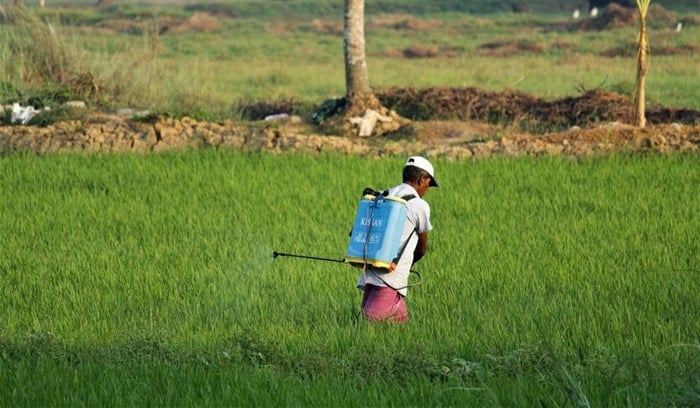
Nigeria’s use of such pesticides is the reason some markets, including the EU and the US, reject the country’s agricultural products. Yet some countries with strict regulations at home still export the banned pesticides to countries like Nigeria.
As a researcher in the field of food and agricultural law, international trade and natural resource development, I’ve explored the laws and regulations that govern the use of pesticides. My research highlights the gaps that undermine export opportunities.
I identified four major factors that make Nigeria’s pesticide regulations ineffective. They are: outdated laws; overlapping regulatory functions; resource limitations; and the influence of multinationals.
Good pesticide regulation should do three main things: protect people and the planet, support effective pest control, and provide redress when harm occurs.
Better regulation will make Nigeria’s agricultural products safer for local consumption and export.
Outdated laws: Nigeria’s laws are outdated. The laws that regulate pesticides do not stop Nigerians from importing banned chemical products.
More than half of the products approved by the National Agency for Food and Drug Administration and Control, the principal agency for pesticides control, contain harmful active ingredients banned by the European Union.
There are no provisions to hold manufacturers accountable for the negative impact of hazardous pesticides. No law requires people to use personal protective equipment when applying pesticides. And there’s no legal duty to monitor residue in food.
Overlapping regulatory functions: The agencies regulating pesticide use in Nigeria don’t work together. Some of their functions overlap and other functions are neglected. A national pesticide policy was announced in March 2019 to help coordinate what they do. But it hasn’t been put into practice.
The regulators and civil society organisations that are supposed to enforce rules and protect consumers don’t collaborate either. The regulatory agencies could get valuable insights and feedback from farmers’ associations, for example. This lack of cooperation makes it harder to develop and use robust regulations.
Resources and financial limitations: Agencies of government are unable to function effectively because of limited financial and human resources. For example, they may not have adequate machinery and laboratories to test products.
Influence of multinationals: Big multinational companies have a lot of power. For instance, the proposed bill to establish a pesticides council reserves two seats for an internationally affiliated association, CropLife Nigeria.
CropLife comprises private companies like Syngenta and Bayer that manufacture highly hazardous pesticides. Council members can make decisions and provide strategic direction. With CropLife as a council member, the regulated becomes part of the regulator. Instead, the council should consist of neutral and independent organisations from the scientific and academic communities.
In 2020, over 270 people died from pesticide poisoning of a community river in Benue State.
A recent survey by the Alliance for Action on Pesticide in Nigeria and Small-scale Women Farmers Organisation in Nigeria showed that 80% of the pesticides used most frequently by small-scale farmers were hazardous. Seventy-five percent of the women farmers in the survey reported symptoms from using pesticides. They include respiratory and eye problems, dizziness, vomiting and skin rashes.
Without strict regulation and enforcement, farmers might misuse or overuse pesticides in farms and storerooms. This would lead to environmental contamination and health hazards for farmers and consumers.
The average Nigerian consumer is unaware of the amount of pesticides in the food they consume. But Nigeria’s food exports are tested regularly, and pesticide residues far exceed maximum limits on some crops.
These regulatory lapses have blocked export opportunities. Since 2015, the European Union has banned agricultural products from Nigeria that contain pesticide residues. These include groundnut, palm oil, sesame seed and beans.
Weak regulations also make Nigeria vulnerable to becoming a dumping ground for internationally banned and counterfeit pesticides.
Nigeria can learn from Tunisia, Mexico and Palestine. They have passed laws that prohibit pesticides that are banned in the countries that make or export them.
The legal community should engage in public interest litigation to hold manufacturing companies accountable for harm caused by pesticides.
The government should do more to inform farmers, pest control operators and extension officers. A community-based, hands-on safety programme will be more effective than formal training.
Food consumers also need to know about pesticide residues in food. The media should inform the public.
Lastly, alternatives to toxic pesticides exist and should be promoted as good ways to manage pests.
These steps will give Nigerian agricultural products a better chance of acceptance in the international market.
Ofoegbu Donald Ikenna, senior programme manager, Sustainable Nigeria programme, Heinrich Boell Stiftung (hbs) Nigeria office, contributed to this article.![]()
This article is republished from The Conversation under a Creative Commons license. Read the original article.

The Conversation Africa is an independent source of news and views from the academic and research community. Its aim is to promote better understanding of current affairs and complex issues, and allow for a better quality of public discourse and conversation.
Go to: https://theconversation.com/africa